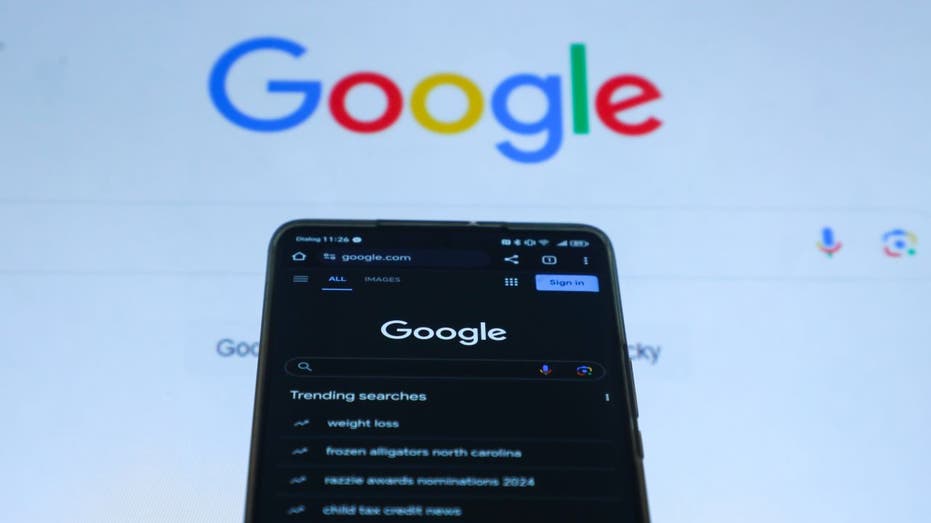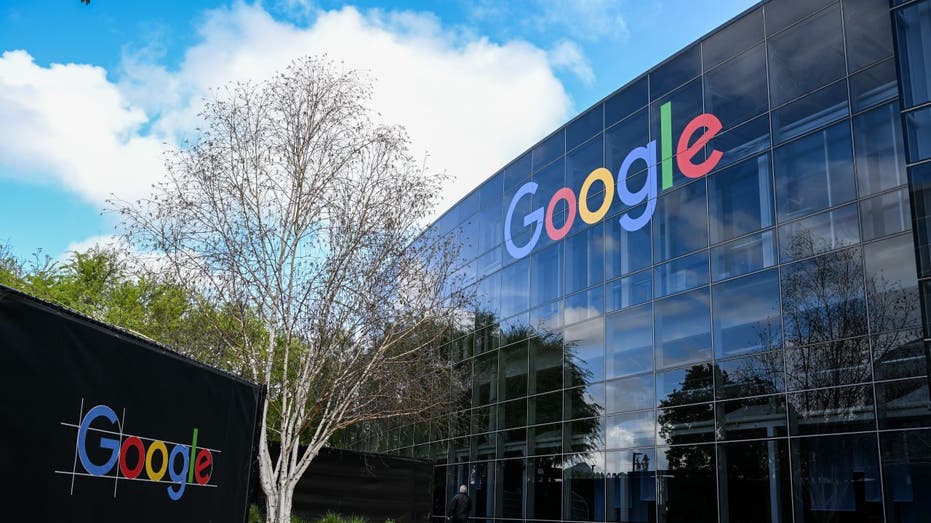Former FCC Commissioner Senior Republican Brendan Carr weighs in on a report that Google could face a breakup of its digital ad business and United Airlines striking a deal with Elon Musk’s SpaceX for its Starlink service.
FIRST ON FOX: A group of Republican attorneys general (AGs) are intervening in a class action lawsuit involving Google, after the company agreed to settle the suit that claimed it was wrongly tracking data.
The AGs say Google is paying big bucks to groups like the American Civil Liberties Union (ACLU) and the lawyers involved, but not to the victims.
“The Parties agreed on a $62 million settlement in a data privacy class action arising out of Google’s tracking and storing of 247.7 million mobile device users’ location data,” the group of 20 AGs wrote in an amicus brief filed Wednesday.
“Yet that agreement gave class members no damages. Instead, most of the settlement fund was devoted to payments to third-party recipients that are not parties to the litigation,” he said.
The lawsuit accused the company of tracking down user information without consent, even if they used a privacy setting that says it will prevent Google from doing so, the settlement states.

A mobile phone is displaying a Google search in Colombo, Sri Lanka, on Jan. 23, 2024. (Thilina Kaluthotage/NurPhoto via Getty Images / Getty Images)
According to the settlement, Google published a support page on how to manage and delete a user’s location history, which said, “When you turn off location history for your Google account, it’s off for all devices associated with that Google account.”
However, despite its assurances, “Google’s representation was false,” the settlement states. An Associated Press report found that turning off “Location History” only stopped Google from creating a location timeline that the user could view, but the tech giant still continued to track the phone owners and kept a record of their locations, the settlement says.
Even when “Location History” is turned off, the settlement says a user’s location is stored every time they use any Google-controlled features on their phone, including the Google Maps app, weather apps and searches made with the phone’s mobile browser.
In their amicus brief, led by Iowa Attorney General Brenna Bird, the AGs said “many of the approved third-party recipients do not bear a ‘substantial nexus’ to the interests of the class members.”
The recipient groups include the ACLU, Free Press and The Information Society Project at Yale.

Iowa Attorney General Brenna Bird arrives to speak on stage on the second day of the Republican National Convention at the Fiserv Forum on July 16, 2024 in Milwaukee. (Joe Raedle/Getty Images)
Though none of those groups are party in the case, they were selected to be a stand-in for the victims.
“These ‘powerful interest group[s]’ that ‘conduct political activity in many fields wholly unrelated to privacy and technology’ are not suitable recipients in this litigation.”

A view of Google Headquarters in Mountain View, California, on March 23, 2024. (Tayfun Coskun/Anadolu via Getty Images / Getty Images)
Attorneys general from Alabama, Alaska, Arkansas, Florida, Georgia, Idaho, Indiana, Louisiana, Montana, Nebraska, North Dakota, Ohio, Oklahoma, South Carolina, South Dakota, Tennessee, Utah and Virginia signed on to the brief.
GET FOX BUSINESS ON THE GO BY CLICKING HERE
Google did not immediately respond to Fox News Digital’s request for comment. The ACLU, Free Press and The Information Society Project at Yale also did not respond to Fox Digital’s request for comment.
Fox News Digital’s Greg Wehner contributed to this report.
